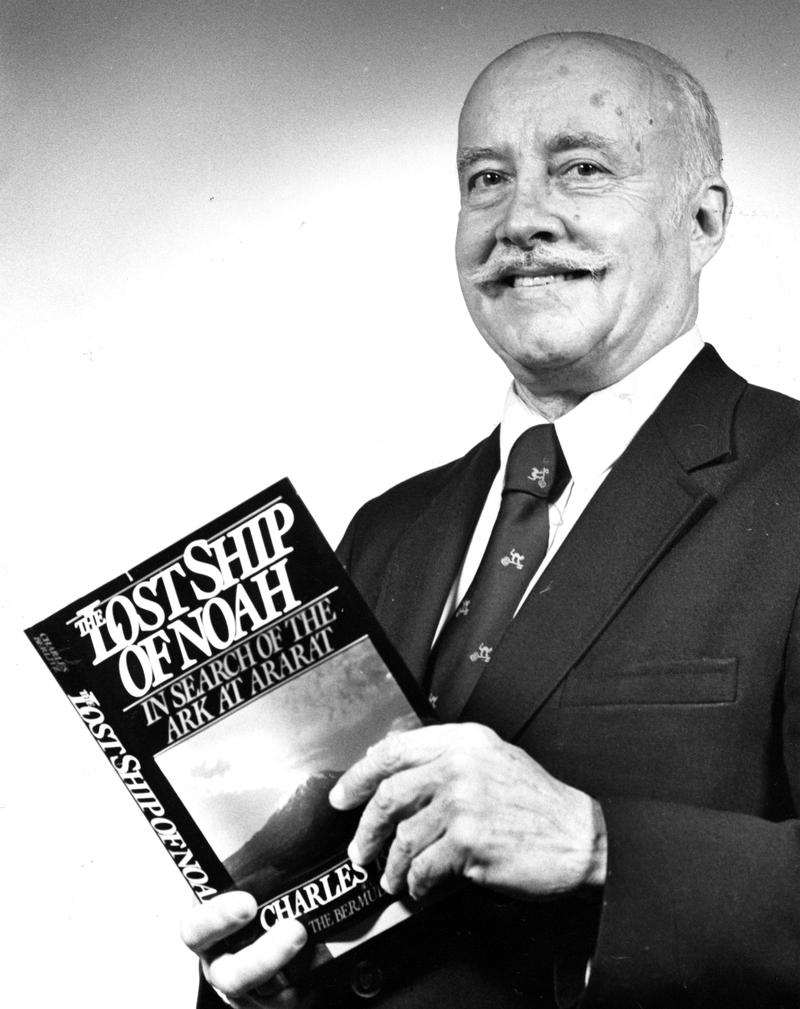
Doug Cooper and George O'Brien dig into the findings of Dr. Berlitz (of the renowned language-teaching family) contained in his best-seller, The Bermuda Triangle.
Cooper asks Berlitz the genesis of his interest in the unexplained disappearances of planes and ships. The writer explains that he developed an interest in ancient languages going back to pre-history (before 4000 B.C.), and that this matched up with undersea walls and pyramids in the Triangle dating back as far as the last "glaciation," in 12,000 B.C.
In short, there was a great civilization precisely in that region. Berlitz co-opts this as his own "Atlantis," and it's submersion as having a nexus to the Triangle mystery.
What distinguishes your work?" Cooper presses. I found the survivors of these events, he tells us; nobody had searched them out and gotten their stories until now. And I obtained the last messages from planes, the actual transcripts which were censored for years after the unexplained losses.
Berlitz went on, comparing our knowledge of the sea with our curiosity about space. He felt that sonar, deep dives and the search for oil will uncover more ruins and, perhaps, some wreckage.
Berlitz sources heightened interest in the Triangle to the loss of military aircraft in 1945. Similar circumstances: clear skies then a haze, the sense of being in a 'void,’ instruments were out, the base couldn't hear them. A subsequent search covered thousands of square miles.
We ask him to supply some of the seminal reportage from the book. He tells us of a Cessna 172 that vanished in a mist over Turk Island (Bahamas), the Flight 19 transcript: a UFO, and the QE II--power out, lost on radar--yet fully visible to the following coast guard.
Asked for an underlying theme, Berlitz saw a kind of electronic camouflage net enveloping the ships and planes and relating to magnetism, whether natural or controlled.
Controlled? Yes, says the author. The selectivity and suddenness of the events may involve suggest that they were intelligence-directed. Berlitz would not revert to claims of a UFO, a hole in space or any particular sentient being(s) in the "wheelhouse.”
He was off to Boston, and an interview there. The call-ins, he advises, are at least fifty percent reports by individuals and what happened to them. The evidence is still piling up.
__________________________________________________________________________
The Douglas P. Cooper Distinguished Contemporaries Collection (1967-1974) contains rare interviews with influential writers, statesmen, artists, songwriters, journalists and others who have left their mark on our culture.
